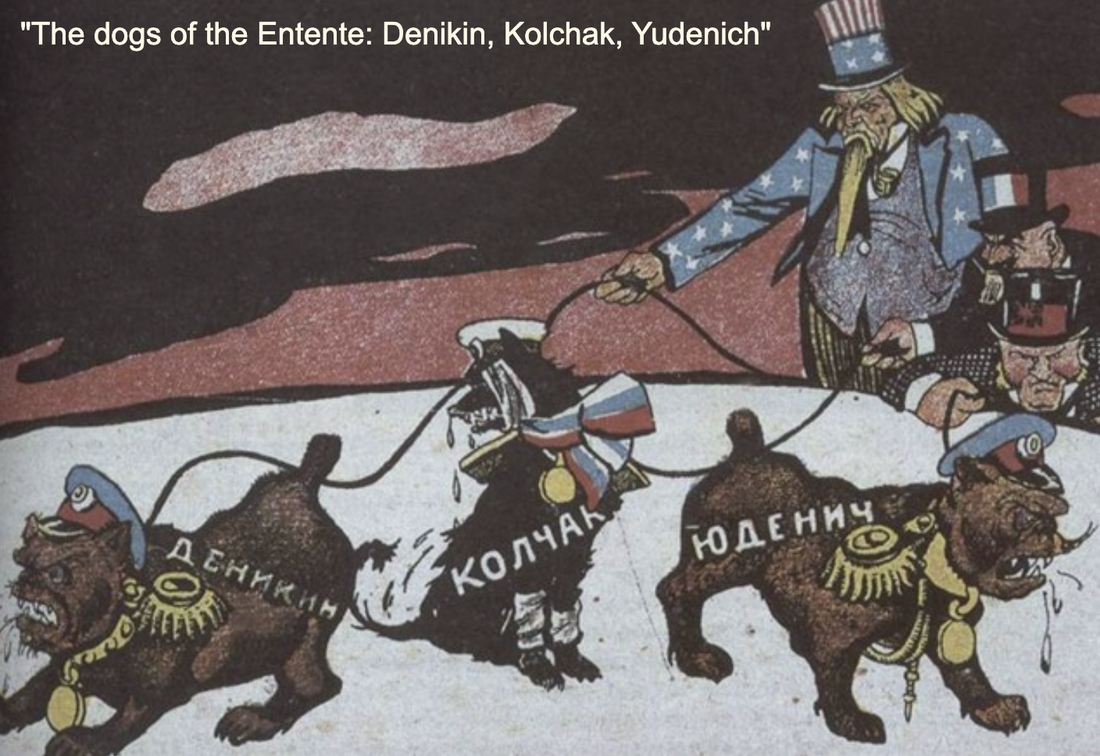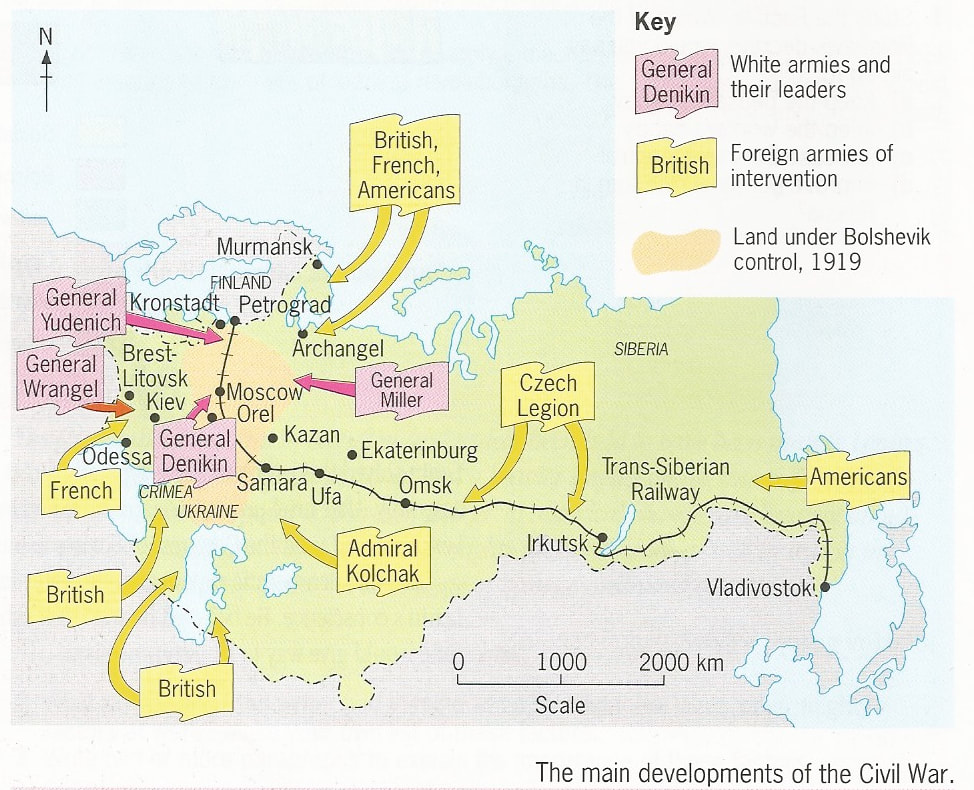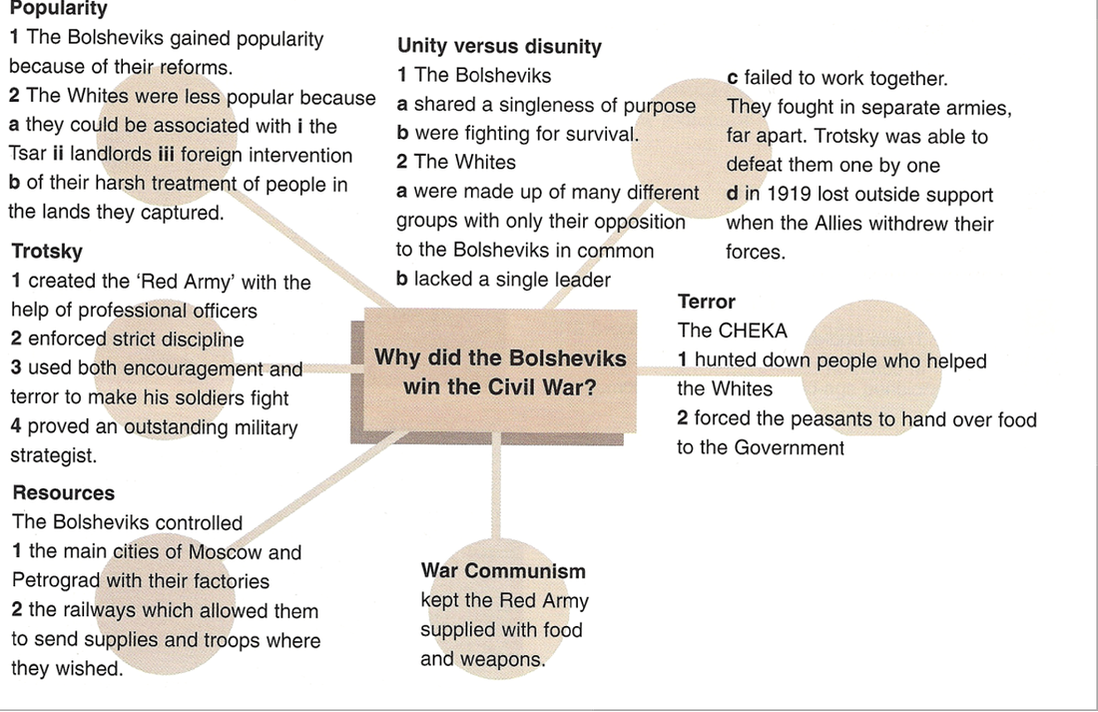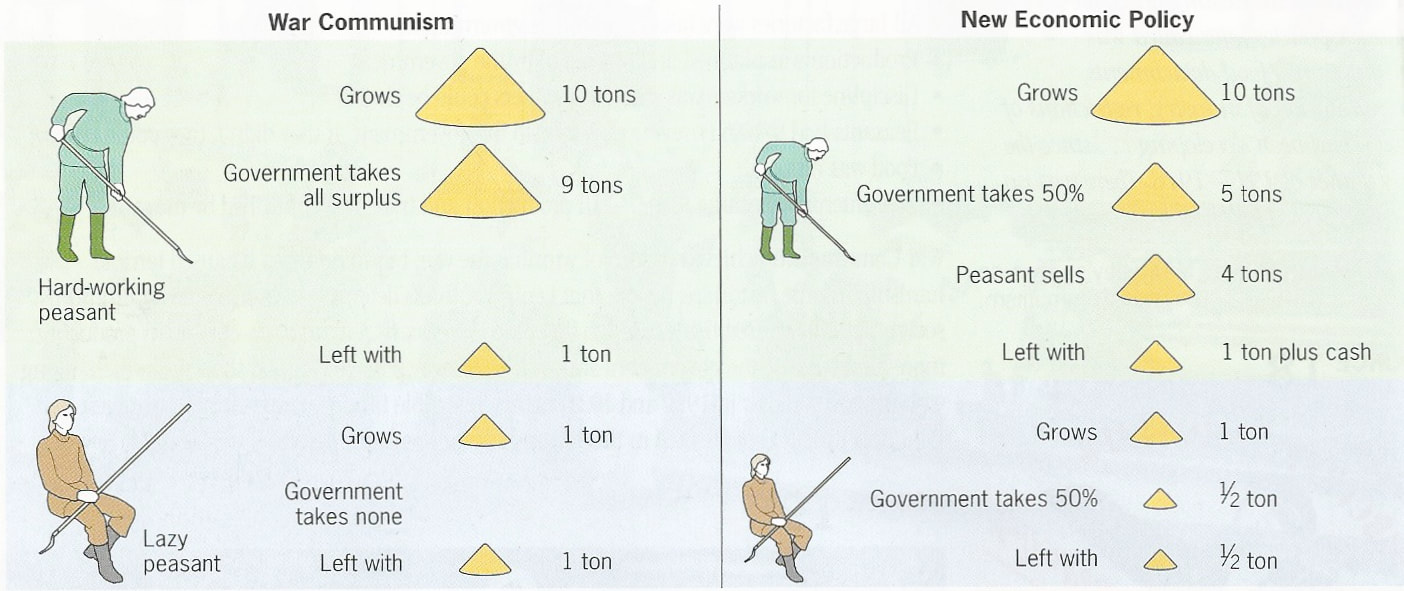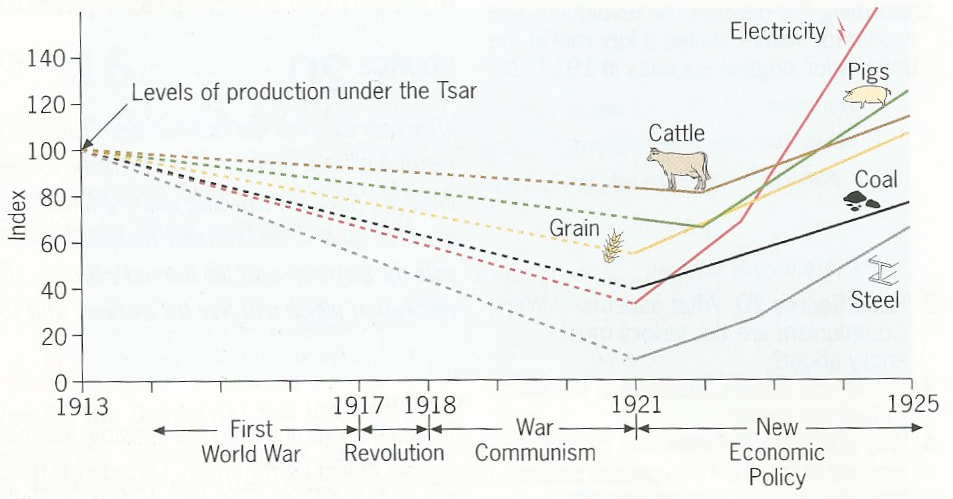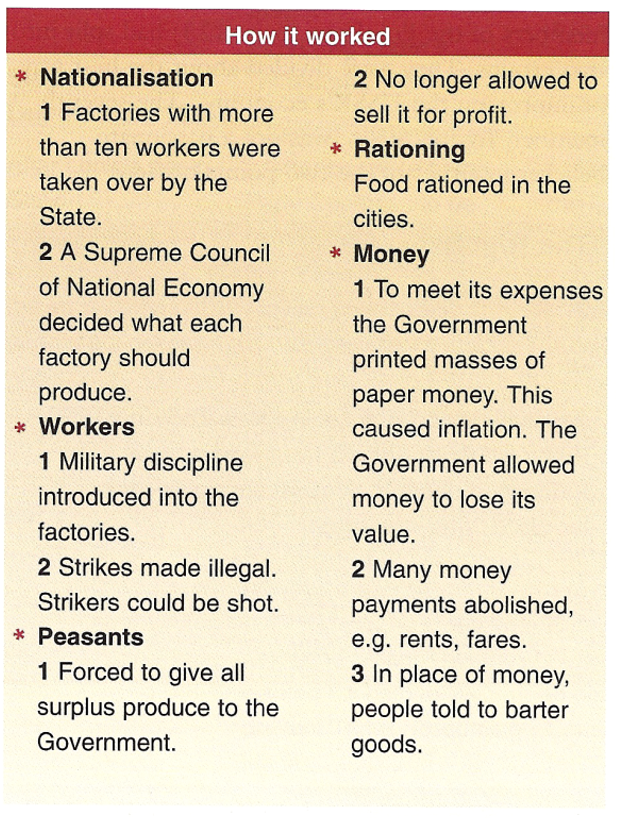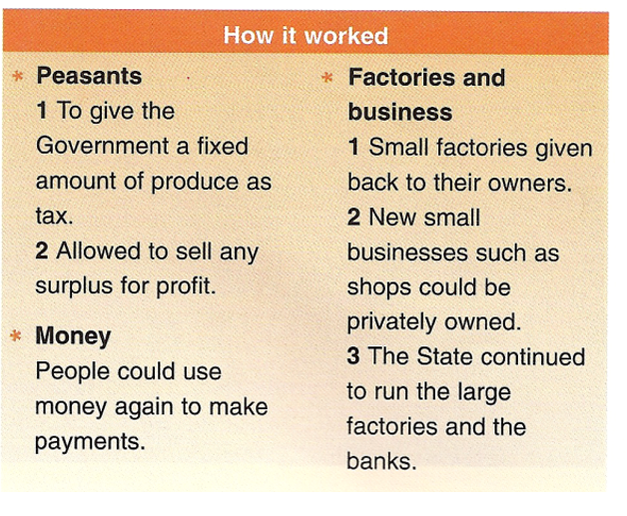Lesson 8 - The Civil War and after
This is one of those important topics that marks both a turning point in history and echoes events we have studied in the past. Just like America in the 18th century borne out of revolutionary war, the Russian revolution would also descend into a war that would influence how the revolution developed.
The Russian Civil War results in a consolidation of power essential to the creation of Stalin's authortarian state (IB Unit 10 - Authoritarian States). It provides a very powerful example of how civil war is fought and why outcomes of civil wars can defy traditional military expectations (IB Unit 11 - Causes and effects of 20th-century wars). Finally, the Russian Civil War marks the beginning of an ideological rivalry which will later characterise the Cold War. (IB Unit 12 - Cold War)
Before beginning this section it is worth reminding yourself of the events in France between 1793 and 1794 and consider these three questions:
1. What caused the Terror of 1793-4?
2. Why did the French Revolutionary government survive?
3. What were the consequences of the Terror on the revolution?
The Russian Civil War results in a consolidation of power essential to the creation of Stalin's authortarian state (IB Unit 10 - Authoritarian States). It provides a very powerful example of how civil war is fought and why outcomes of civil wars can defy traditional military expectations (IB Unit 11 - Causes and effects of 20th-century wars). Finally, the Russian Civil War marks the beginning of an ideological rivalry which will later characterise the Cold War. (IB Unit 12 - Cold War)
Before beginning this section it is worth reminding yourself of the events in France between 1793 and 1794 and consider these three questions:
1. What caused the Terror of 1793-4?
2. Why did the French Revolutionary government survive?
3. What were the consequences of the Terror on the revolution?
|
|
|
The Civil War
The key to the Bolsheviks ability to hold on to power and consolidate it was their success in the Civil War which broke out in March 1918. The creation of a one party state and signing of the punitive peace of Brest-Litovsk hardened political opposition to the Bolsheviks. But the first phase of the Civil War was instigated by former prisoners of war from the Austro-Hungarian army who had been recruited to the Russian war effort with the promise of Russian support for Czech and Slovak independence. This Czech Legion was being transported to help the Entente powers on the Western Front when they revolted against the Bolshevik soviets that were attempted to disarm them. Very quickly a loose confederation of anti-Bolshevik forces aligned against the Communist government, including landowners, conservatives, pro-monarchists, liberals, army generals and non-Bolshevik socialists.
The key to the Bolsheviks ability to hold on to power and consolidate it was their success in the Civil War which broke out in March 1918. The creation of a one party state and signing of the punitive peace of Brest-Litovsk hardened political opposition to the Bolsheviks. But the first phase of the Civil War was instigated by former prisoners of war from the Austro-Hungarian army who had been recruited to the Russian war effort with the promise of Russian support for Czech and Slovak independence. This Czech Legion was being transported to help the Entente powers on the Western Front when they revolted against the Bolshevik soviets that were attempted to disarm them. Very quickly a loose confederation of anti-Bolshevik forces aligned against the Communist government, including landowners, conservatives, pro-monarchists, liberals, army generals and non-Bolshevik socialists.
|
Their military forces - the White Army - were led by three tsarist generals General Nikolai Yudenich, Admiral Alexander Kolchak and General Anton Denikin. The 'Whites' were also soon to be supported by a number of western governments. Fearing both that the 'dangerous' Marxist ideas would spread and that the Bolsheviks would default on the massive war loans that had been given to Tsarist Russia, the British, French and Americans (amongst others) mobilised against the Bolsheviks. (The long-term causes of the Cold War are to be found here.) For a time it seemed that the Bolsheviks would be defeated, but as in France in 1793 the Russian revolutionary government came up with a military and economic response that dealt brilliantly with the crisis and a leader who rose to the occasion. As the great Marxist writer Isaac Deutscher wrote, 'Trotsky’s resemblance to Danton will hardly be disputed. Both represented the same type of revolutionary leadership, oratorical genius and tactical brilliance.' And just as Robespierre condemned Danton to the guillotine, so Trotsky was to suffer a similar fate at the hands of Stalin.
|
A Bolshevik cartoon published in 1919. The dogs are labelled (from left to right) Yudenich, Kolchak, Denikin. These were the commanders of the three main White armies
|
|
War Communism
The economic response to the crisis of the civil war was War Communism. Just as Robespierre had introduced the draconian Law of the Maximum in September 1793, so the Bolsheviks went even further by centrally controlling all aspects of the economy and dedicating them to the war effort. In 1919-21 as in 1793-94, economic control was accompanied by extreme political terror. (See film on Kronstadt rebellion above) |
|
New Economic Policy
In 1921 with the Civil War over and the Kronstadt rebellion crushed, Lenin introduced a remarkable volte face in economic policy which would last up to and beyond his death in 1924. The NEP effectively reintroduced limited capitalism, allowing private ownership and the profit motive back into the economy. The results were remarkable and did much to help the Bolsheviks stay in power. |
|
Activities
In addition to watching the film on the Russian Civil War above, remember to refer to your textbook pages 118-125. 1. Why did the Bolsheviks win the civil war? Draw up a table of Bolshevik’s strengths v Whites’ weaknesses. 2. Explain what the NEP did and why it helped to keep the Bolsheviks in power. Both the Civil War and the NEP should be considered in relation to the question from the previous lesson about how the Bolsheviks strenghtened (consolidated) their power. |
|
Extension and extra
Graham Darby extract - How did the Bolsheviks retain power?
On why the Bolsheviks won the civil war see: summary sheet taken from James Mason Modern World history to GCSE
Extract from Peter Oxley - Russia 1855-1991.
Michael Lynch extract on Lenin's developing economic policy.
Graham Darby extract - How did the Bolsheviks retain power?
On why the Bolsheviks won the civil war see: summary sheet taken from James Mason Modern World history to GCSE
Extract from Peter Oxley - Russia 1855-1991.
Michael Lynch extract on Lenin's developing economic policy.
|
|

